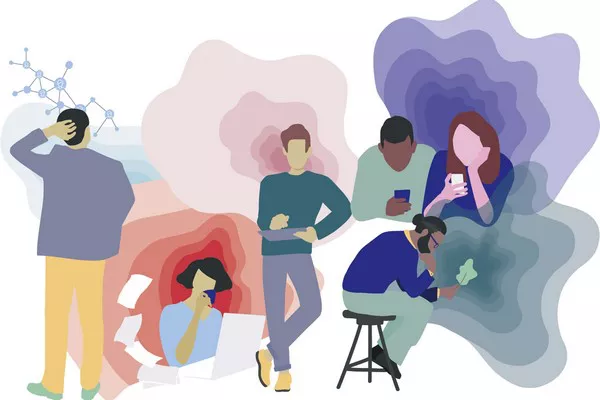Psychiatric drugs, often referred to as psychotropic medications, play a vital role in the treatment of mental health conditions. They can help manage symptoms, improve the quality of life, and provide much-needed relief for individuals dealing with disorders like depression, anxiety, bipolar disorder, schizophrenia, and more. However, like any medication, psychiatric drugs come with potential side effects. Understanding these side effects is crucial for both healthcare providers and individuals seeking mental health treatment. In this comprehensive article, we will explore the common side effects of psychiatric drugs, how to manage them, and the importance of open communication with healthcare professionals.
Psychiatric Medications: A Multifaceted Approach
Psychiatric medications encompass a wide range of drugs, each designed to address specific mental health conditions and symptoms. These medications can be broadly categorized into the following classes:
Antidepressants: Prescribed for conditions like depression and anxiety disorders, these medications work to balance neurotransmitters in the brain.
Antipsychotics: Primarily used to manage symptoms of schizophrenia and bipolar disorder, antipsychotics help regulate brain chemicals that influence mood and behavior.
Mood Stabilizers: These medications are essential for individuals with bipolar disorder to prevent extreme mood swings.
Anti-Anxiety Medications: Typically prescribed for anxiety disorders, these drugs provide relief from excessive worry and fear.
Stimulants: Commonly used to treat attention deficit hyperactivity disorder (ADHD), stimulants help improve focus and reduce impulsivity.
Sedatives/Hypnotics: Prescribed for sleep disorders and anxiety, these drugs promote relaxation and sleep.
Common Side Effects of Psychiatric Drugs
While psychiatric drugs can be highly effective, they may also produce a range of side effects. It’s essential to note that not everyone will experience these side effects, and their severity can vary. Here are some common side effects associated with psychiatric medications:
1. Nausea and Digestive Issues:
Many psychiatric drugs can cause nausea, vomiting, diarrhea, or other gastrointestinal discomfort. These symptoms can often be managed by taking the medication with food or adjusting the dosage.
2. Weight Changes:
Weight gain or loss is a common side effect of several psychiatric medications. This can be distressing for some individuals and may require dietary and lifestyle adjustments.
3. Drowsiness and Fatigue:
Some medications, especially sedatives and certain antidepressants, can cause drowsiness, making it challenging to stay alert during the day. Adjusting the timing of medication or discussing alternatives with a healthcare provider may help.
4. Sexual Side Effects:
Antidepressants, particularly selective serotonin reuptake inhibitors (SSRIs), can lead to sexual side effects such as reduced libido, erectile dysfunction, or difficulty achieving orgasm. Open communication with a healthcare provider is crucial to address these concerns.
5. Dizziness and Lightheadedness:
Certain medications may cause dizziness or lightheadedness, especially when standing up quickly. It’s essential to be cautious when engaging in activities that require balance.
6. Dry Mouth:
Dry mouth is a common side effect of various psychiatric drugs. Staying hydrated and using sugar-free gum or lozenges can provide relief.
7. Tremors and Muscle Stiffness:
Some antipsychotic medications can lead to tremors or muscle stiffness, which may require adjustments to the treatment plan.
8. Cognitive Impairment:
Cognitive side effects, such as difficulty concentrating or memory problems, can occur with certain medications. It’s important to discuss these concerns with a healthcare provider.
9. Skin Issues:
Skin rashes or changes in skin pigmentation are potential side effects of specific psychiatric drugs.
10. Metabolic Changes:
Certain medications can affect metabolic parameters, leading to increased cholesterol levels, blood sugar changes, or an increased risk of developing metabolic syndrome.
Managing Side Effects
Addressing and managing side effects is an essential part of psychiatric treatment. Here are some strategies for effectively managing side effects:
1. Open Communication:
Maintaining open and honest communication with a healthcare provider is crucial. If you experience side effects, discuss them with your provider to explore potential solutions or alternative medications.
2. Medication Adjustments:
In some cases, adjusting the dosage or switching to a different medication within the same class can help minimize side effects while maintaining treatment effectiveness.
3. Lifestyle Modifications:
Making healthy lifestyle choices, such as maintaining a balanced diet, engaging in regular physical activity, and managing stress, can help mitigate some side effects, such as weight changes.
4. Supplemental Medications:
In certain situations, healthcare providers may prescribe additional medications to manage specific side effects, such as medications to address sexual dysfunction or insomnia.
5. Regular Monitoring:
Routine check-ups with a healthcare provider can help monitor the effectiveness of the medication and identify any emerging side effects.
6. Psychotherapy:
Combining medication with psychotherapy can be highly effective in managing mental health conditions and addressing the emotional impact of side effects.
Individualized Treatment
It’s important to recognize that psychiatric medication responses are highly individualized. What works well for one person may not be suitable for another. Healthcare providers take into account various factors, including the specific mental health condition, medical history, and potential side effects, when prescribing medication.
In Conclusion
Psychiatric drugs play a vital role in the management of mental health conditions, offering relief and improved quality of life for many individuals. While side effects are a possibility, they can often be managed effectively through open communication with healthcare providers, medication adjustments, and lifestyle modifications. It’s essential to weigh the benefits of symptom relief against the potential side effects when considering psychiatric treatment. Ultimately, the goal is to work collaboratively with healthcare professionals to find the most suitable treatment plan that balances the therapeutic benefits of medication with the individual’s unique needs and preferences.


